Changing awareness, proactively greening the production chain
After 10 years, the supporting industry development program has been increasingly expanded in scope and scale. The program has attracted the attention of many organizations, units, and enterprises operating in the supporting industry, processing, and manufacturing sectors across the country, and has been actively participating, especially in specialized technical support activities such as production management, quality management, improving the quality of human resources, and innovating and applying technology to production.
After participating in the program's activities, a large proportion of the 6,000 businesses operating in the field have really changed and transformed in a positive direction. Businesses have the ability to increase productivity and production efficiency while cutting costs, saving resources, helping to improve the competitiveness of businesses as well as opening up many opportunities to find new potential customers and partners.
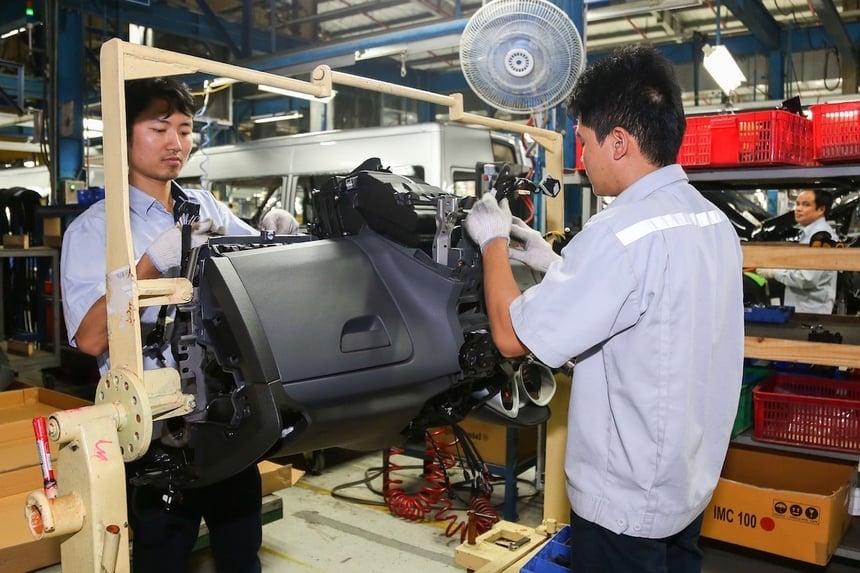
The domestic supply capacity of the supporting industry only meets about 10% of demand. Illustrative photo.
Notably, after ten years of implementing the supporting industry development programs, the most obvious change is not only in technology or production scale, but also in the awareness of enterprises about green transformation. Enterprises no longer consider environmental standards as a secondary requirement in production but as a vital factor to survive in the global supply chain.
The shift is most evident in businesses that know how to take advantage of policies to innovate technology. In Hanoi, Vietnam Supporting Industry Joint Stock Company invested in an energy-saving cold stamping line, helping to reduce 15% of electricity consumption without affecting productivity. HTMP Mechanical Co., Ltd. applied the ERP green management system, cutting 10% of raw material costs and optimizing production processes. Duy Tan Plastic Company invested in an international standard PET plastic recycling line, producing recycled plastic pellets for food packaging. Steel companies such as Hoa Phat and Pomina switched to using steel scrap as input materials, reducing carbon emissions and energy costs.
Mr. Nguyen Hoang, Chairman of the Hanoi Association of Supporting Industry Enterprises, said that many enterprises in Hanoi have received the IATF 16949 quality system management certificate (international standard on quality management in the automobile industry) and are qualified to participate in the production chain of multinational corporations.
Through the “Smart Factory - Green Production” Program of the Ministry of Industry and Trade in collaboration with Samsung Vietnam, green and smart models have also been widely replicated. Samsung Group has consulted dozens of Vietnamese enterprises, helping to reduce product defect rates from 5% to only 0.5% and save 30% of costs. Toyota has also trained hundreds of mechanical and mold technicians, helping many enterprises gradually meet the strict standards of the global automobile production chain, towards building a sustainable supporting industrial ecosystem.
According to the Department of Industry (Ministry of Industry and Trade), supporting industry enterprises have proactively approached international environmental standards, applied cleaner production and made emission data transparent. Many enterprises have built their own sustainable development departments, or published sustainability reports according to GRI standards. In 2024 alone, 60 supporting industry enterprises will be supported to apply ISO 14001 and ISO 50001 standards, and nearly 3,000 engineers and managers will be trained in cleaner production. These are specific steps to help fragmented production facilities gradually shift to a modern management model, with energy efficiency and emission reduction as central criteria.
Some sectors have undergone significant changes. The textile and garment industry, under pressure from international brands, is proactively greening its production chain, using recycled fibers, solar energy, circular wastewater treatment technology, and applying blockchain to trace origins. Along with that, the breakthrough in the export of electronics and technology products from Vietnam has attracted investment from the world's leading technology corporations such as Samsung, LG, Apple, etc.
In some large industrial zones, circular production models have begun to take shape, in which the waste of one enterprise becomes the input of another, contributing to the formation of a sustainable industrial ecosystem.
Green transformation has also expanded to the private sector and startups. In Ho Chi Minh City, Hanoi, and Da Nang, many renewable energy projects, low-carbon logistics, and waste recycling have attracted domestic and foreign investment capital. Many domestic funds have also begun to deploy green credit for energy-saving projects in the fields of mechanics, electronics, and plastics, contributing to expanding financial resources for small and medium-sized enterprises - groups directly affected by greening requirements.
From dependence to step-by-step mastery
Over the past ten years, supporting industries (CNHT) have become one of the key areas in the national industrialization strategy. If the 2010-2015 period was just the initial step in terms of policy and infrastructure, the 2016-2025 period has witnessed the substantial maturity of domestic enterprises. From being mainly processing enterprises, many Vietnamese enterprises are now able to supply products to global corporations, gradually meeting international standards on technical capacity and environment.
At the 7th session of the 15th National Assembly, the supporting industry was recognized by the National Assembly as an important field in sustainable economic development, strengthening domestic production capacity and improving Vietnam's competitiveness. Deputy Minister of Industry and Trade Truong Thanh Hoai emphasized that supporting industry has contributed to the development of many key industries, helping Vietnam increase its trade surplus from 2 billion USD in 2017 to more than 28 billion USD in the current period.
Looking back over the 10-year journey, Vietnam’s supporting industry has gone from dependence to gradual mastery, from individual production to chain linkage, from quantity-based growth to green quality development. Many businesses have begun to publish sustainable development reports, make environmental data transparent, and participate in international assessment platforms.
In the context of a volatile world economy, along with the deep integration process through the CPTPP, EVFTA or RCEP agreements, opportunities will open up for Vietnam's supporting industry to become an important link connecting regional and global value chains. Director of the Trade Promotion Agency of the Ministry of Industry and Trade Vu Ba Phu affirmed that Vietnam's supporting industry plays a key role when the trend of shifting supply chains is taking place strongly in Southeast Asia.
In addition, in the domestic market, the trend of sustainable consumption and prioritizing green products is increasing. The government aims to develop the semiconductor industry, renewable energy and advanced transport infrastructure such as high-speed railways, opening up a great demand for new components, materials and technical solutions. This is an opportunity for supporting industry enterprises to take a shortcut, build smart factories, international quality management systems and environmentally friendly products.
The trend of shifting supply chains creates great opportunities for Vietnamese industry, but in order for the supporting industry to grow and ensure rapid and sustainable development, the Government, ministries, sectors and localities must step up support for small and medium-sized enterprises, invest in technical infrastructure and specialized industrial parks, create a favorable environment for supporting industry enterprises to connect and form production chains. At the same time, issue policies on green transformation and sustainable development. Encourage enterprises to apply ISO environmental standards, deploy circular production models, use renewable energy and recycled materials. Authorities will also monitor, evaluate and support enterprises in the process of applying international standards, ensuring transparency, efficiency and consistency.
Source: https://nongnghiepmoitruong.vn/muoi-nam-kien-tao-cong-nghiep-ho-tro-phat-trien-xanhbai-2vuon-len-nac-thang-moi-d781077.html
























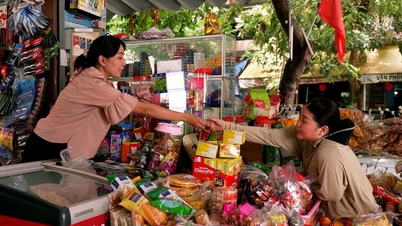

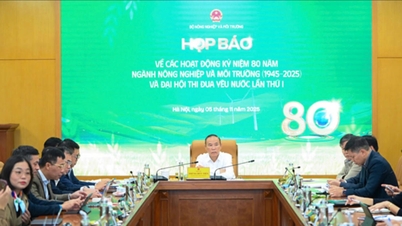






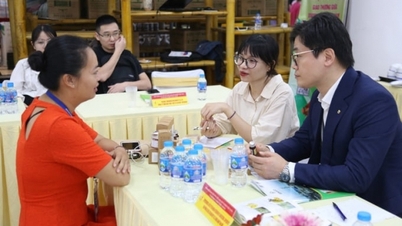
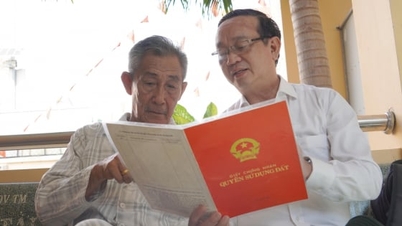
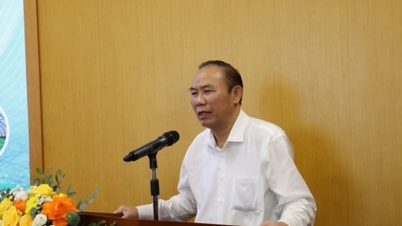


![[Photo] Opening of the 14th Conference of the 13th Party Central Committee](https://vphoto.vietnam.vn/thumb/1200x675/vietnam/resource/IMAGE/2025/11/05/1762310995216_a5-bnd-5742-5255-jpg.webp)
![[Photo] Panorama of the Patriotic Emulation Congress of Nhan Dan Newspaper for the period 2025-2030](https://vphoto.vietnam.vn/thumb/1200x675/vietnam/resource/IMAGE/2025/11/04/1762252775462_ndo_br_dhthiduayeuncbaond-6125-jpg.webp)






































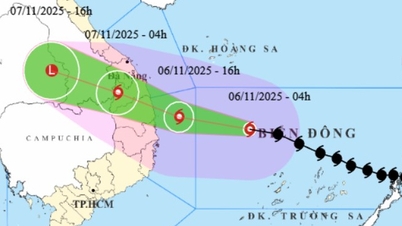











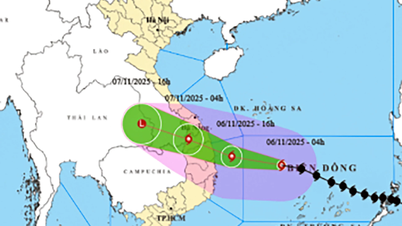





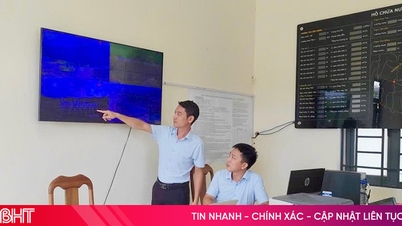

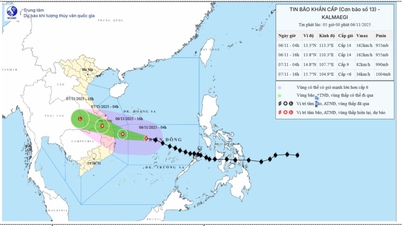

















Comment (0)